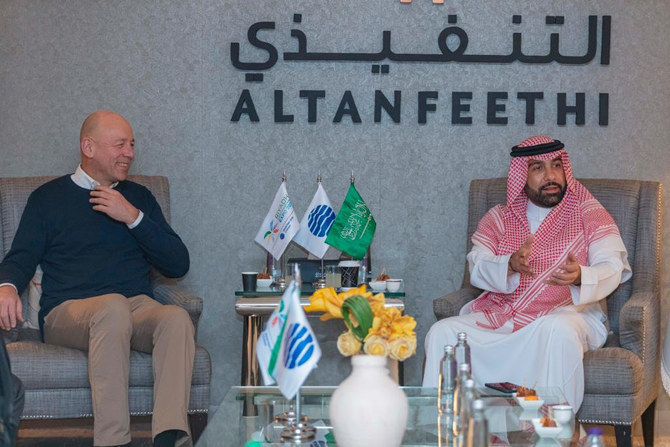RIYADH: A delegation from the Bureau International des Expositions (BIE) Enquiry Mission arrived in Riyadh on Sunday to start their six-day evaluation process of the Riyadh Candidacy for World Expo 2030.
Saudi Arabia announced its bid to host World Expo 2030 in Riyadh in October 2021 and has made three presentations to the BIE General Assembly since then.
The Enquiry Mission is headed by Patrick Specht, president of the BIE Administration and Budget Committee. He is accompanied by BIE Secretary-General Dimitrios Kerkentzes, Eva Descarrega Garcia (Andorra), Karen-Mae Hill, OBE (Antigua and Barbuda), Aldwin Dekkers (Belgium) and additional members of the BIE Secretariat.
Welcoming the delegation to Riyadh, Fahd Al-Rasheed, CEO of the Royal Commission for Riyadh City, said: “The visit will provide a first-hand opportunity for the delegates to witness the support of our leadership, the commitment of our government, and the excitement of the people of Riyadh and Saudi Arabia, to host a World Expo in our capital city in 2030.”
“Riyadh submitted a robust bid dossier last September under the main theme, Together for a Foresighted Tomorrow, and its candidacy is currently enjoying global support,” Al-Rasheed added.
The BIE delegation will engage with ministers, members of government and subject matter experts to evaluate the details of the Riyadh Expo 2030 bid.
The Enquiry Mission is a mandatory prerequisite for a country’s candidature to be considered for election. Its task, when visiting a candidate city, is to assess the feasibility and viability of each one.
This assessment includes detailed presentations of the project and exchanges with officials and key stakeholders involved in the candidature. Using the candidature dossier as a guide, each Enquiry Mission will look into the motivations behind the Expo candidature, the attractiveness of the proposed Expo theme, the proposed site and its planned re-use after the Expo, levels of local and national support for the project, expected participation, and the financial feasibility plan.
The findings of the Enquiry Missions will be discussed by the BIE’s executive committee in May 2023, which will decide which candidatures to retain as being feasible and viable. In November 2023, at the 173rd General Assembly of the BIE, the host country of World Expo 2030 will be elected by BIE Member States, via a secret ballot and based on the principle of “one country, one vote.”
The year 2023 will see key milestones for Riyadh Expo 2030 with the current Enquiry Mission visit, a presentation to the General Assembly in June and the final vote by the General Assembly in November 2023.

























